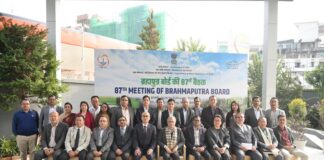Canberra: Australia’s national science agency has teamed up with researchers from universities and the United Nations Environment Program to develop a tool to track global resource consumption.
The Commonwealth Scientific and Industrial Research Organization (CSIRO) on Friday launched the material footprint indicator developed in conjunction with fellow researchers including those from the University of Sydney, the University of New South Wales (UNSW) and the University of Vienna.
The tool tracks the resources consumed by each country to deliver science-based information on their material footprint.
“The size of our global material footprint has consequences for climate mitigation, biodiversity, and waste and pollution outcomes,” Heinz Schandl, CSIRO Group Leader for Urban and Industrial Transformations and coordinating author of the paper, said in a media release.
“Net-zero carbon can only be achieved if supported by a significant change in material composition reducing the share of carbon-intensive materials, for example, in construction and transport,” he said.
“Australian (central and regional) governments can rely on the material footprint measure and the new global capability to inform resource productivity, recycling and clean energy, net-zero and waste reduction efforts. This places Australia as a global leader to inform the decoupling of economic growth and living standards from adverse environmental and climate impacts,” Schandl said.
According to the tool, countries such as Australia, China and the United States have the biggest material footprint on account of large infrastructure projects and houses and high consumption.
Manfred Lenzen from the University of Sydney said household consumption in wealthy countries was the biggest factor in the world’s material footprint.
“Shifting away from material-intensive lifestyles requires maximizing product lifetimes, reusability, repairability, and recyclability, while also reducing obsolescence and consumption that doesn’t enhance wellbeing,” he said.


